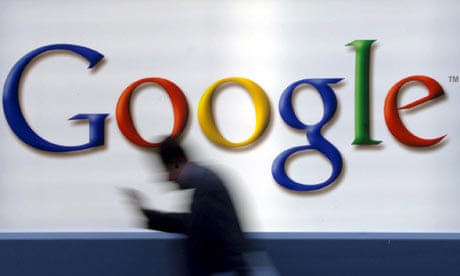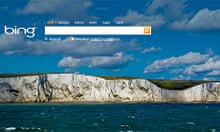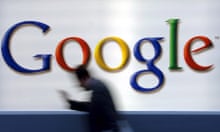Google is facing a preliminary anti-monopoly probe by the European Commission into its dominant position in online browsing and digital advertising following allegations that it demotes competing websites to the lower echelons of customers' search results.
The Silicon Valley internet company revealed today that the commission has sent out formal questionnaires seeking information about complaints from three firms – the British price comparison site Foundem, a French legal search engine called eJustice and a shopping site, Ciao, which is owned by Microsoft.
The complaints centre on the way in which Google's search results are compiled and on the terms and conditions the company attaches to deals with advertisers.
Although the commission's investigation is only at a tentative stage, the fact that Brussels is taking the issue seriously is likely to set off alarm bells at Google.
The commission has a history of coming down forcefully on powerful technology companies — it has levied huge financial penalties on Microsoft and Intel in recent years for tactics to squash competing software.
Google handles 80% of European web searches, according to research firm ComScore, compared to 65% in the US. But in a blog posting, Google's senior European competition counsel, Julia Holtz, shrugged off the complaints, saying: "This kind of scrutiny goes with the territory when you are a large company."
She said Google had nothing to hide: "We are confident that our business operates in the interests of users and partners, as well as in line with European competition law."
Google is likely to characterise the issue as an attack partly orchestrated by Microsoft, which recently merged its search business with Yahoo's in an effort to challenge Google's comfortable market lead.
Holtz pointed out in her posting that not only is one of the plaintiffs owned by Microsoft but that a second, Foundem, is part of a trade grouping sponsored by Microsoft called the Initiative for a Competitive Online Marketplace.
However, the European complaints are merely the latest in a series of critiques of Google's position. Thousands of authors have been battling plans by Google to digitise the contents of millions of books. In Italy, prosecutors are challenging Google's YouTube video website on the grounds of invasion of privacy. And newspapers in countries including Germany have attacked the free use of their content on Google News.
The chief executive of Vodafone, Vittorio Colao, last week added his voice, calling for a European investigation into Google's 80% share of the mobile phone search market: "The fact that 80% of the advertising online goes down one funnel is something that should be looked at in the future debate on net neutrality."
Getting the European Commission to quiz Google is a victory for firms such as Foundem, which has complained for three years that the vagaries of Google's search algorithm have huge consequences for the number of visitors to its website, which compares the prices of anything from flights to microwave ovens.
Google argues that it never deliberately discriminates but that its search engine produces results based on quality, with websites that merely "scrape" content from other sources faring poorly.



